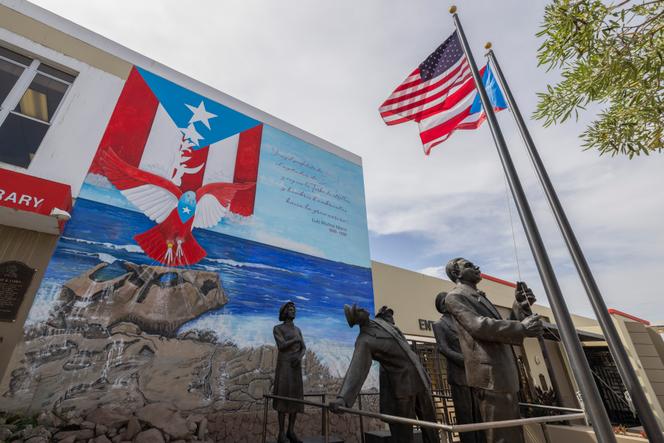

LETTER FROM THE CARIBBEAN

In Puerto Rico, Kamala Harris' victory was resounding – and purely symbolic. Harris, the Democratic candidate in the November 5 US presidential election, won this Spanish-speaking Caribbean island by a wide margin: 73.4% of the vote against just 26.6% for Donald Trump, her Republican Party opponent, with a turnout rate of 57.5%. But the outcome here had no impact on the outcome of the national election.
This is because the 3.2 million inhabitants of this territory, given the ambiguous status of "free associated state," cannot participate in presidential elections or appoint elected representatives to Congress. As a result, "many Puerto Ricans feel like they are treated as second-class citizens," pointed out Luis Ayala de la Cruz, a professor of US history at the University of Puerto Rico.
It was the first election of its kind held on the island. "Although it was symbolic, [it] proved that if Puerto Rico were to become a state, it would probably be a Democratic one," said José Antonio Molinelli Gonzalez, a professor of political science at the Inter American University of Puerto Rico.
But could the territory one day become the 51st state? At any rate, this is what a majority of Puerto Rican voters wants. Although it was overshadowed by the presidential election, there was also a referendum on the November 5 ballot that offered Puerto Rican voters three options: US statehood, independence or sovereignty in free association (as defined by the United Nations and not in its current hybrid form). US statehood came out well ahead, with 56.9% of the vote against 31% for independence and a turnout rate of 57%. The profoundly unpopular status quo was not among the possible choices.
This is not the first time that Puerto Ricans have expressed this opinion at the ballot box. The November 5 referendum was the seventh of its kind since the 1960s. Puerto Rico, formerly a Spanish colony, was annexed by the US in 1898 and adopted its Constitution in 1952, after which it became an "unincorporated, organized territory," according to the prosaic terminology used in Washington. The three previous elections – in 2012, 2017 and 2020 – had also ended in victory for the pro-estadidad ("statehood") camp.
Puerto Ricans have long embraced the status of free associated state, as it combines "the best of both worlds," according to Molinelli – namely, "the preservation of the cultural and economic sovereignty of the Puerto Rican nation while still maintaining close ties to a great power like the United States." However, in recent decades, as the territory has sunk into a deep economic crisis, this argument has become "less attractive" compared to the alternatives. "The estadidad narrative responds to a desire for equality with the rest of the United States, and the independence narrative is about the struggle for lost sovereignty."
You have 51.78% of this article left to read. The rest is for subscribers only.
